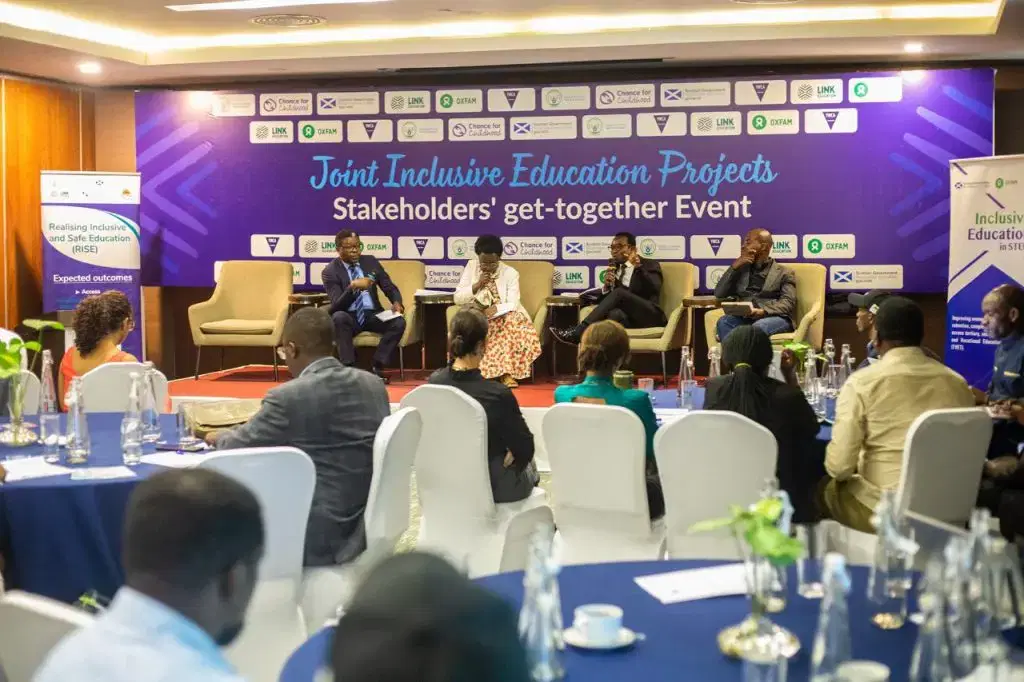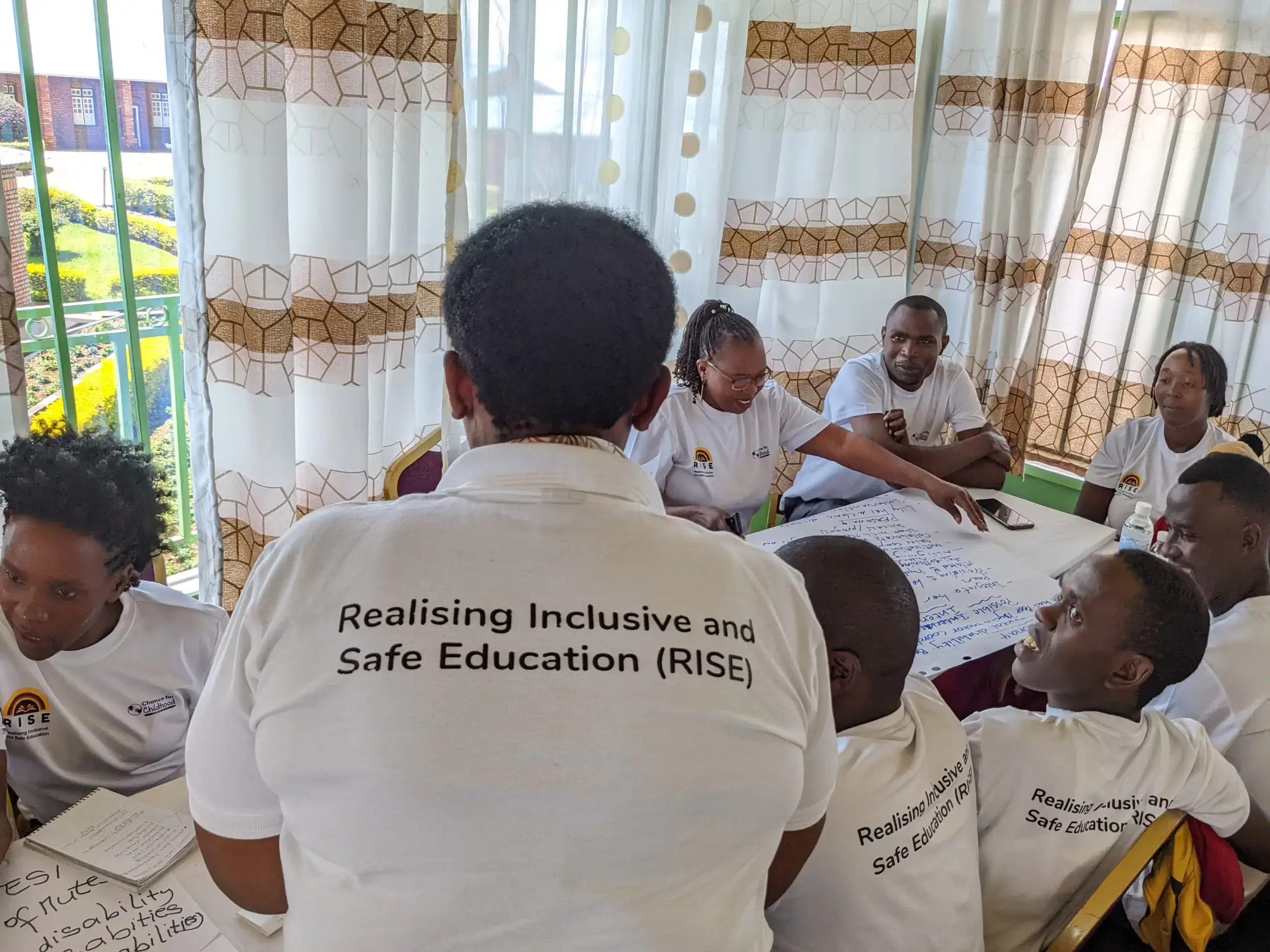Rwanda, Malawi and Zambia
2025 – 2029
Funding Partner: The Scottish Government
Implementing Partner in Malawi: LINK Education
Implementing Partner in Zambia: School to School International
Implementing Partner in Rwanda: Chance for Childhood
Why is the project needed?
Despite the critical importance of education, children with disabilities or special educational needs are often left behind. A lack of inclusive infrastructure in schools is a major barrier, as is a lack of training and resources for teachers, inadequate assistive devices for the children, and discrimination. According to UNESCO, children with disabilities are 2.5 times more likely not to go to school than their non-disabled peers. In rural Rwanda, only 8.4% of children with disabilities attend school.
About the project
The Realising Inclusive and Safe Education (RISE) project will work in eight districts across Malawi, Rwanda and Zambia, and reach 422 government schools, 5,952 teachers and school leaders, 402,981 learners or which 10,031 have a disability, and support 16 resource centres.
It will strengthen government support for children with disabilities, especially girls, and ensure these children are able to access a safe and quality education. Project partners will support identification, assessment and device provision for children with disabilities, will strengthen teacher and leadership training in gender and inclusive education, and engage communities and school governance bodies to better support children with disabilities.
RISE is delivered by Link Community Development Malawi, Chance for Childhood in Rwanda and School to School in Zambia, is managed by Link Education International and funded by the Scottish Government. This consortium will draw on extensive experience to co-design and deliver a project that will meet the diverse needs of the RISE participants, alongside government partners, Organisations of People with Disabilities (OPDs), schools and communities. RISE is running from July 2024 to March 2029.
Key activities will include:
Co-designing project interventions with local communities and stakeholders to ensure activities are targeted and meet the greatest local needs
Identifying and supporting learners through the provision of assistive devices such as hearing aids, glasses and mobility aids, and links to medical help and social services
Teacher and school leader professional development, including customised materials and support for local trainers to lead sessions at primary and secondary level
Inclusive education training and community sensitisation for School Management Committees, parents, school leaders and district education authorities
Training for schools in creating evidence-based, participatory and accessible improvement plans with a gender and disability lens, feeding data to the national level
Consulting with Ministries of Education to ensure gender and inclusion are prominent agendas within national education standards

Goals and Objectives
- Reach 422 government schools
- Support 402,981 learners, of which 10,031 have a disability
- Support 5,952 teachers and school leaders
- Support 16 resource centres.
Read the full project brief here.

